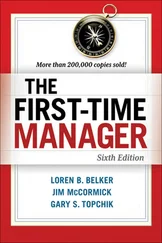Джон Болл - The First Team
Здесь есть возможность читать онлайн «Джон Болл - The First Team» весь текст электронной книги совершенно бесплатно (целиком полную версию без сокращений). В некоторых случаях можно слушать аудио, скачать через торрент в формате fb2 и присутствует краткое содержание. Год выпуска: 2013, Жанр: Триллер, на английском языке. Описание произведения, (предисловие) а так же отзывы посетителей доступны на портале библиотеки ЛибКат.
- Название:The First Team
- Автор:
- Жанр:
- Год:2013
- ISBN:нет данных
- Рейтинг книги:5 / 5. Голосов: 1
-
Избранное:Добавить в избранное
- Отзывы:
-
Ваша оценка:
- 100
- 1
- 2
- 3
- 4
- 5
The First Team: краткое содержание, описание и аннотация
Предлагаем к чтению аннотацию, описание, краткое содержание или предисловие (зависит от того, что написал сам автор книги «The First Team»). Если вы не нашли необходимую информацию о книге — напишите в комментариях, мы постараемся отыскать её.
Student protesters are being slaughtered in the Midwest.
The Jewish pogroms have begun.
You are now living in Soviet — occupied America!
One nuclear submarine and a handful of determined patriots against the combined might of Russia and Soviet-occupied America… The Most Explosive and Gripping “What If” Novel of Our Time!
First published January 1971
The First Team — читать онлайн бесплатно полную книгу (весь текст) целиком
Ниже представлен текст книги, разбитый по страницам. Система сохранения места последней прочитанной страницы, позволяет с удобством читать онлайн бесплатно книгу «The First Team», без необходимости каждый раз заново искать на чём Вы остановились. Поставьте закладку, и сможете в любой момент перейти на страницу, на которой закончили чтение.
Интервал:
Закладка:
John Ball
The First Team
1
When the alarm rang Hewlitt stayed in bed for a minute or two wondering if he should get up at all. The clock had not awakened him; he had been lying for some time with his eyes wide open, staring at the plaster ceiling that hung above his head. He had been a slave of the efficient little electric clock for so long that the idea of being able to ignore it had a certain hypnotic fascination. Then, carefully, he listened. Outside, through the open window of his bedroom, he could hear the familiar traffic noises; they told him that for the moment, at least, people were doing what they had always done.
Still he lay quietly, waiting. Then he caught the faint aroma of fresh bread from the Georgetown bakery close by. That settled it; things were at least normal enough that he would have to get out of bed without any more delay.
As he shaved he attempted to sort things out in his mind and formulate a plan of action for each of the several possibilities which he might have to face within the next two or three hours. Because he did not have enough in the way of hard facts to go on, he ended up with nothing except the awareness that in his line of work being late on the job was normally unthinkable. He wondered if he still had a job at all. Then he reasoned very simply that the only way to find out was to go and see.
The automatic coffee maker that he had turned on showed a glowing red light. He unwrapped a Danish sweet roll, dropped a cube of sugar into an empty cup, and sat down to breakfast. His watch told him that he was substantially on schedule. As he ate he took note of the continuing thumping caused by automobile tires as they ran over the edge of the irregular manhole cover in front of the apartment building. He knew the sound so well it transmitted a certain sense of Satisfaction, like the grasp and feel of a familiar object. He wondered, then, if Frank would be there as usual to drive him to work. He seemed to be finding satisfaction in trivialities; they occupied his mind and kept him from focusing on the bigger things which would confront him all too soon.
When he had finished and was ready to go, he glanced through the window and saw that Frank was waiting for him as always. He was parked at the curb, sitting behind the wheel of his five-year-old taxi, a veteran survivor of the Washington traffic. If Frank were to get a new cab it would disrupt things even more, Hewlitt decided as he made his way out. He climbed in and spoke his usual greeting.
“Where to?” Frank asked.
That was the first break — the first thing that was out of its usual pattern. For more than three years Frank had driven him almost every weekday morning to the same address — and sometimes on weekends too when he had been needed.
Hewlitt’s first reaction was to strengthen his own confidence by snapping back a little tersely, but he thought better of it almost at once. Frank was a pillar of reliability, and clearly he too was concerned. “The same as always,” Hewlitt said, “at least for the time being.”
Frank nodded, then he slipped his cab into gear and began to thread his way into the pattern of the flowing traffic.
As the minutes passed, Hewlitt noted that if there were any other signs of change, they were well hidden. When they paused for a light an electronic parts store had a sign out announcing its annual sale. In the dusty window bare speakers gaped like forlorn souls in some sort of mechanical purgatory, naked and defenseless without mountings to hold them decently enclosed or amplifiers to give them life.
When they moved forward once more Hewlitt noticed one or two shops which were still closed when they should have been open, but they were too few in number to be conclusive. He sat back in the seat and tried once more to set the pattern of his mind so that he would remain calm, but still be prepared for whatever circumstances he might have to face. Then Frank caught his attention. “You still planning to go to your office?” he asked.
Hewlitt leaned forward and matched his own voice to Frank’s. “Why not?”
The driver’s powerful shoulders rose once and then fell. “Things might be different,” he said. “You might just walk right into a lotta trouble.”
“I thought of that,” Hewlitt said, “but what choice have I got?”
Frank waited until they were free of other cars. “This old hack don’t look too good, but it runs just fine,” he began. “I take care of it myself. We could load up with some gas, most of the stations are still open, and plain get the hell outa here. I know a few places.”
“Down south?”
“In the mountains.”
Hewlitt realized what the offer meant. “They could find us,” he warned. “That could be very serious for you — if they thought we were trying to run away.”
Frank became a trifle more urgent. “Don’t worry about that. I can take care o’ myself. If it comes to that, I can always say that you hired me to drive you there. That would put the monkey on you, but don’t sweat it, I’m pretty good in the hills. They couldn’t find us that easy.”
For a moment it was a temptation and Hewlitt rapidly weighed the factors involved. Then he shook his head. “If you’ll feel safer that way, then you go,” he said. “Believe this, I wish that I could go with you and I’d trust you completely if I did. But I’m going to take a chance because it might just work out better that way.”
Frank considered that. “I figure I know what you mean. In a way it makes sense. But if you need some help, you know where to come.”
Hewlitt reached out and for a moment laid his hand on Frank’s shoulder. “I won’t forget. And it goes both ways, you can depend on that.”
The cab turned into Pennsylvania Avenue. For the rest of the ride neither man spoke; they had said all that they had to say to each other. When Frank pulled up in front of the entrance to the West Wing of the White House, Hewlitt climbed out as he always did and then passed over a folded bill. “For tomorrow, too,” he said.
“Gotcha.” Frank pushed the money into his shirt pocket without looking at it and then drove away.
Automatically Hewlitt produced his identification. The men who guarded the entrance knew him well, but the rule had been inflexible for some time — everyone had to produce identification and an authorization card, every time, without any exceptions. The check-in process remained unchanged; his presence was duly noted as he passed inside and went to his small office in the basement, not too far from the communication room. On the way there he was tensely alert for any indications of change in what should have been a charged atmosphere, but things seemed deceptively placid. The few other persons whom he encountered nodded to him and then went on about their own separate businesses; there was no unnecessary communication, no evidence of camaraderie.
In a sense his role here was a minor one, but he had no illusions that he would escape whatever lay ahead. If he had entertained that idea for even a moment, the appearance of his office would have awakened him to the truth. Two things were different, minor things that were significant. First, the usual pile of papers and documents which normally lay on his desk each morning for him to read and translate was not there. And, secondly, the modest, unimportant picture that someone had stuck on his wall a few months previously once more showed its familiar face.
There seemed no work for him to do; he felt like someone returning from a long vacation to find that his desk had been cleaned out and the familiar trappings of his employment removed. The picture told the same story in different language. It was a routine publicity photograph, in color, of the Polar Aircraft Corporation’s latest fighter, the supersonic Ramrod. A press representative had passed out several of the framed prints, one of which had ended up on the wall of Hewlitt’s office. He had let it remain there because the photographer had done an amazingly good job; the sleek dynamic lines of the plane and its almost unbelievably small wings had been captured in a picture which was both the portrait of an aircraft and an abstract composition. Even within the boundaries of the neat black frame the fighter seemed about to leap forward with uncontrolled raw power. Later, when the news tickers began to beat out the relentless facts about its disappointing performance and mechanical problems, he had one day turned the picture face to the wall. Everyone knew, of course, what the picture was and the blank side had been a silent, effective rebuke. Now it was before him once more, the aircraft appearing so full of promise and so invincible in combat. He had been told to look at it, or so it seemed to him, and he did not like it at all.
Читать дальшеИнтервал:
Закладка:
Похожие книги на «The First Team»
Представляем Вашему вниманию похожие книги на «The First Team» списком для выбора. Мы отобрали схожую по названию и смыслу литературу в надежде предоставить читателям больше вариантов отыскать новые, интересные, ещё непрочитанные произведения.
Обсуждение, отзывы о книге «The First Team» и просто собственные мнения читателей. Оставьте ваши комментарии, напишите, что Вы думаете о произведении, его смысле или главных героях. Укажите что конкретно понравилось, а что нет, и почему Вы так считаете.












